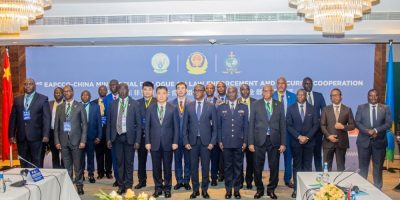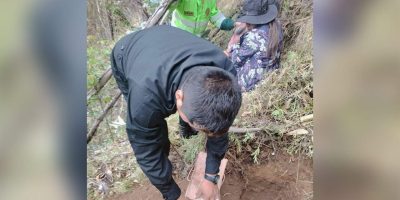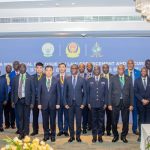By Balal Mohamed Cusman
Somalia’s story is one of extraordinary endurance, a testament not only to the strength of its people but also to the power of community. For more than three decades, Somalia has faced some of the harshest trials any nation could endure – civil war, natural disasters and the relentless interference of foreign powers intent on keeping Somalia trapped in a perpetual state of fragility for their own geopolitical and economic advantage. Yet despite the absence of a functioning central government for much of this period, Somalia has endured. This resilience is deeply rooted not in formal institutions but in an intricate web of kinship networks, mutual obligations and social interdependence that span from the immediate family to the extended clan. These social structures – organic, adaptive and decentralized – served as Somalia’s invisible government (Menkhaus, 2006; Gundel, 2002).
In the Somali culture, one’s wellbeing is inseparable from that of their kin. The extended family remains the cornerstone of social protection, ensuring that even amid displacement or economic collapse, no one is entirely abandoned. Such networks provide a living, buoyant system of social security, functioning where formal governance fails (Little, 2003; Putnam, 1993). It is this collective strength, the shared moral duty to care for one another, that has held Somalia together when all else fell apart.
By contrast, many other African nations, carved by colonial powers, lacked the cohesive social fabrics that connect communities across regions and identities. Without deeply interwoven kinship systems spanning their entire societies, several of these countries succumbed quickly to violence, state failure, or fragmentation when confronted with crises of similar magnitude (Clapham, 1996; Herbst, 2000). Somalia, though also shaped by colonial boundaries, retained a deeply rooted indigenous social cohesion that transcended political breakdowns. It is this cohesion, not foreign intervention or external aid, that explains Somalia’s remarkable endurance amid chaos.
However, resilience alone cannot build a nation state. History teaches us that the ability to endure must evolve into the ability to govern, and that requires leadership. Somalia people have already demonstrated an unmatched capacity to survive without a central state, but the time has come to move from survival to transformation. What Somalia needs at this critical juncture is visionary and principled leadership capable of rising above clan loyalties and personal ambition to articulate a unifying national vision rooted in sovereignty, dignity and self-reliance.
Such leadership must be forward-looking and courageous, bold enough to design a long-term strategy that transcends internal divisions and foreign manipulation. It must inspire a collective sense of purpose, harnessing Somalia’s immense human potential, youthful energy and natural wealth toward common national objectives. Visionary leadership, therefore, is not a luxury for Somalia, it is an existential necessity. It is the catalyst that can transform the country’s rich social capital into political stability, economic growth, and regional influence.
With the right leadership, Somalia can reclaim its rightful position in the region and beyond, not as a state defined by crisis, but as a nation defined by resilience, creativity and unity of purpose. Our past four decades prove that no amount of hardship, whether imposed from within or without, can extinguish the Somali spirit. But the coming years must show something even greater – our collective ability to turn endurance into excellence. A leadership that recognizes the immense value of Somalia’s social capital and aligns it with a coherent, Somali-owned, Somali-led national strategy that can transform those same kinship bonds that preserved us in darkness into the foundation of a peaceful, prosperous, and self-determined future.
Somalia’s experience finds resonance in China’s historical journey, another society built upon familial and communal interdependence. For centuries, China endured internal strife, foreign domination, humiliation, and natural disasters. Yet through it all, strong family networks, lineage systems and local cooperation preserved social order and continuity. These traditions ultimately formed the cultural foundation upon which China’s modern state was rebuilt (Fei, 1992; Huang, 1990). But it was a visionary leadership – determined to modernize without erasing the social fabric – that turned China’s collective resilience into national resurgence.
The lesson is profound – a nation’s endurance in the face of existential threats depends less on its wealth or institutions, and more on the strength of its social bonds and the foresight of its leadership. A country may boast billionaires, intellectual elites and modern infrastructure, but without a shared sense of communal responsibility and visionary direction, resilience remains fragile. Somalia’s kinship-based system has already shown the world that when family and community stand as the bedrock of society, survival, even in the harshest conditions, is possible. But, the challenge before us now is not survival, but transformation. Somalia must therefore craft a Somali-owned, Somali-led national vision that harmonizes traditional structures with modern governance, leveraging its social network as a strategic national asset and most importantly, a leadership anchored in integrity, wisdom and long-term strategy so that Somalia can rise once again, not merely as a country that endured collapse, but as one that redefined what it means to rebuild from within.
Balal Mohamed Cusman
Email: [email protected]
————-
Balal is the former State Minister for Foreign Affairs and International Development of Somalia. X: @BalalCusman
—————–
References
• Clapham, C. (1996). Africa and the International System: The Politics of State Survival. Cambridge University Press.
• Fei, X. (1992). From the Soil: The Foundations of Chinese Society. University of California Press.
• Gundel, J. (2002). The Migration-Development Nexus: Somalia Case Study. International Migration.
• Herbst, J. (2000). States and Power in Africa: Comparative Lessons in Authority and Control. Princeton University Press.
• Hofstede, G. (2001). Culture’s Consequences: Comparing Values, Behaviors, Institutions and Organizations Across Nations. Sage Publications.
• Little, P. D. (2003). Somalia: Economy Without State. Indiana University Press.
• Menkhaus, K. (2006). Governance Without Government in Somalia: Spoilers, State Building, and the Politics of Coping. International Security, 31(3), 74–106.
• Putnam, R. D. (1993). Making Democracy Work: Civic Traditions in Modern Italy. Princeton University Press.
• Triandis, H. C. (1995). Individualism and Collectivism. Westview Press.
• Huang, P. C. C. (1990). The Peasant Economy and Social Change in North China. Stanford University Press.



















